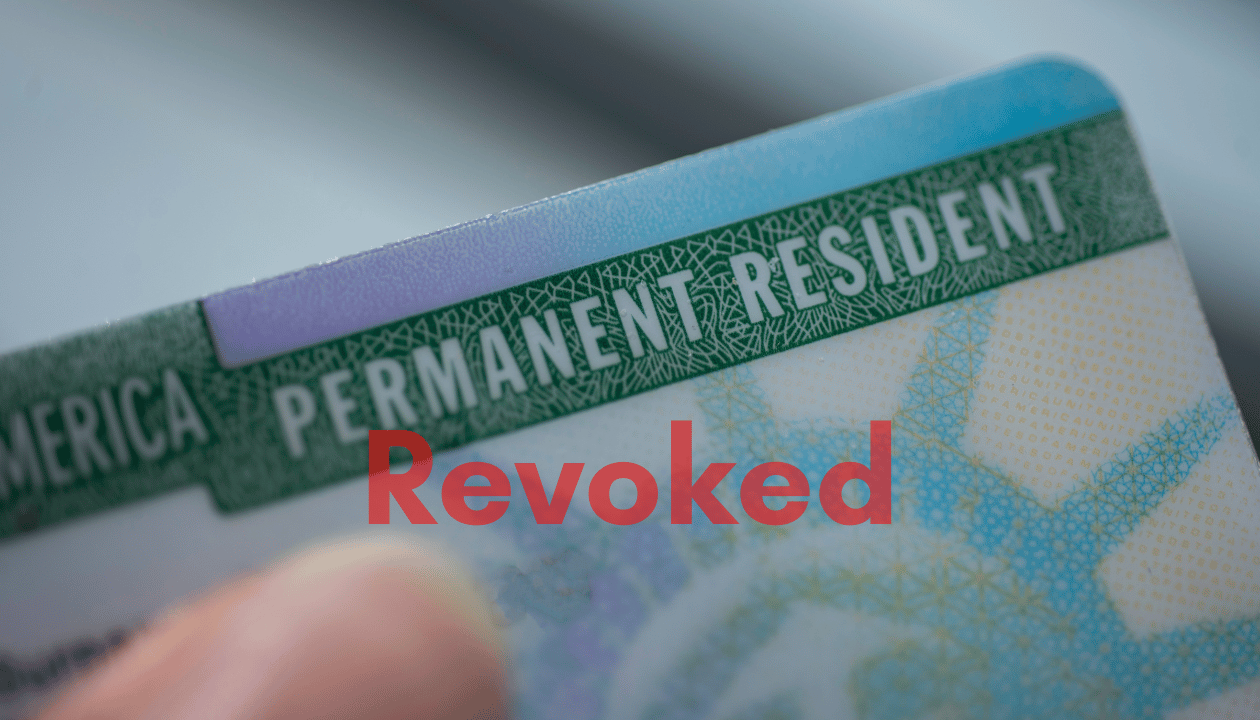Applying for a marriage-based green card is an essential milestone for couples planning a life together in the United States.
While many applicants assume that submitting a marriage certificate is enough, U.S. Citizenship and Immigration Services (USCIS) closely examines each case to detect potential fraud.
Even in genuine marriages, certain red flags may trigger additional scrutiny, delays, or even a denial of the green card application.
A marriage-based green card application must demonstrate a legitimate, bona fide marriage, meaning the relationship is built on love and commitment, not just for immigration benefits.
However, USCIS officers are trained to identify inconsistencies and warning signs. A simple oversight, missing documentation, or misunderstanding in the green card interview can lead to unnecessary complications.
At The Chidolue Law Firm, we guide couples through the green card process, ensuring their applications are strong, complete, and free from avoidable red flags.
What Does USCIS Consider a Red Flag?
Couples expect a smooth process when applying for a marriage-based green card. However, U.S. Citizenship and Immigration Services (USCIS) closely examines each application to detect fraud.
A red flag does not automatically indicate fraud, but may raise concerns requiring further investigation. When USCIS officers detect inconsistencies or unusual patterns, they may:
✔ Issue a Request for Evidence (RFE): Asking for more proof, such as joint financial records or affidavits from family and friends.
✔ Schedule a Stokes Interview: A second green card interview where spouses are questioned separately.
✔ Refer the case to an immigration officer for further review if fraud is suspected.
To avoid delays, couples should be aware of potential red flags in their marriage-based green card application and take proactive steps to provide strong supporting evidence.
What USCIS Looks for in a Strong Marriage-Based Green Card Application
A well-prepared application demonstrates a genuine marital relationship and helps avoid unnecessary USCIS scrutiny. Some green flags that indicate a bona fide marriage include:
✔ A well-documented relationship history, including photos, emails, and travel records.
✔ Joint bank accounts, shared leases, and financial interdependence to show a combined financial life.
✔ Consistent and truthful responses during the green card interview, avoiding contradictions.
Couples should ensure their application process includes sufficient evidence to prove their good-faith marriage, minimizing any risk of green card denial.
Common Red Flags That May Trigger USCIS Scrutiny
A marriage-based green card application is carefully reviewed by U.S. Citizenship and Immigration Services (USCIS) to determine if the relationship is genuine. While many marriage green card cases are straightforward, certain red flags may lead to increased scrutiny, additional interviews, or even denial.
If a U.S. citizen or green card holder is sponsoring their spouse, they must provide sufficient evidence to avoid suspicions of marriage fraud. The following red flags are commonly investigated during the green card process.
1. Short or Unusual Courtships
If a couple marries shortly before a visa expires or has a brief courtship before applying for a marriage-based green card, USCIS officers may flag the case for further review. Rapid engagements without a strong relationship history can raise concerns, especially when combined with other red flags.
📌 How to Avoid Delays:
✔ Provide a marriage certificate, travel records, and messages proving the couple’s history.
✔ Submit joint proof of life together, such as birth certificates of children, joint bank accounts, or shared expenses.
2. Significant Age Gaps or Cultural Differences
A large age gap or major cultural differences are not automatic signs of fraud, but they may trigger additional questioning. If spouses do not share a common language or come from vastly different backgrounds, USCIS immigration officers may investigate whether the marriage is authentic.
📌 How to Avoid Scrutiny:
✔ Include supporting documents, such as messages, photos with family members, and wedding celebrations.
✔ If applicable, provide proof of religious or cultural ceremonies recognized by both families.
3. Lack of Financial or Residential Ties
One of the strongest indicators of a bona fide marriage is shared financial and residential ties. Suppose an applicant fails to submit supporting documents such as joint bank account statements, a shared lease, or co-owned property. In that case, USCIS may suspect the couple is not truly living together.
📌 How to Strengthen Your Case:
✔ Provide joint tax returns, rental agreements, or utility bills showing both names.
✔ Show evidence of financial interdependence, such as health insurance policies, retirement plans, or loans.
4. Different Addresses or Extended Time Living Apart
If a couple has lived separately for extended periods, USCIS may question whether they have a real marital relationship. While work, study, or visa-related issues may sometimes keep couples apart, a lack of proof of ongoing communication can lead to a Request for Evidence (RFE) or denial.
📌 How to Address This Issue:
✔ Submit proof of communication, such as video call logs, social media interactions, and travel records.
✔ If applicable, provide an explanation for temporary separation, such as work assignments or family emergencies.
5. Contradictory Answers in the Green Card Interview
During the green card interview, both spouses must provide consistent and accurate answers to immigration officers. If answers about daily routines, anniversaries, or relationship history do not match, USCIS may suspect the marriage is fraudulent.
📌 How to Prepare for the Green Card Interview:
✔ Review important relationship milestones, daily habits, and family dynamics together before the interview.
✔ Ensure both spouses provide clear and confident answers without contradictions.
6. Prior Immigration Violations or Criminal History
A foreign spouse who has prior immigration violations, unlawful presence, or criminal history may face difficulties during the adjustment of status process. Any past removal proceedings or fraudulent entries into the U.S. can lead to automatic denials unless a waiver is granted.
📌 How to Avoid Rejection:
✔ Consult with an immigration attorney before applying if you have past legal issues.
✔ Submit proof of rehabilitation or legal waivers, if applicable.
7. Lack of Evidence of a Bona Fide Marriage
A strong marriage-based green card application must include sufficient supporting documents proving the couple is genuinely married. Missing evidence, such as wedding photos, family celebrations, or a marriage certificate, may cause delays or denial.
📌 How to Avoid Scrutiny:
✔ Include multiple types of evidence, such as a marriage certificate, birth certificates of children (if applicable), and joint travel records.
✔ Submit letters of support from family and friends, confirming the couple’s relationship.
What Happens If USCIS Suspects Marriage Fraud?
If USCIS officers suspect a marriage-based green card application is fraudulent, they may take the following actions:
✔ Issue a Request for Evidence (RFE): Asking for additional documentation to verify the relationship.
✔ Schedule a Stokes Interview: A separate green card interview where both spouses are questioned individually.
✔ Place the case under further review: If fraud is suspected, the case may be referred to Homeland Security for further investigation.
If the application is denied due to suspicion of fraud, the foreign spouse may face removal proceedings and be barred from obtaining a green card.
How to Avoid Green Card Application Delays Due to Red Flags
A marriage-based green card application is one of the most scrutinized immigration processes handled by U.S. Citizenship and Immigration Services (USCIS).
Even when a couple has a genuine relationship, certain inconsistencies can trigger delays or even denials. Unlike other types of immigrant visa applications, marriage-based cases require clear proof of cohabitation, shared finances, and long-term commitment.
For couples where a lawful permanent resident or U.S. citizen is sponsoring their foreign spouse, unexpected challenges can arise, especially if there are gaps in documentation, unusual living arrangements, or prior immigration law violations. Delays are common, but with proper legal guidance, they can be minimized.
Key Factors That Cause Delays in the Green Card Process
🔹 Lack of Evidence for a Bona Fide Marriage
If a couple does not provide sufficient documentation proving the legitimacy of their marriage, USCIS officers may flag the case. A permanent resident spouse or citizen spouse must submit financial records, shared lease agreements, and social proof to avoid additional scrutiny.
🔹 Mistakes in the Green Card Application
Errors on forms, missing supporting documents, or failing to file Form I-485 for adjustment of status properly can delay processing. A simple mistake can result in a receipt notice requesting corrections, causing months of delay.
🔹 Unresolved Immigration History
If a foreign spouse has a conditional green card and fails to meet the permanent resident status requirements or has prior removal proceedings, USCIS may require additional legal clarification before proceeding.
🔹 Issues with Travel or Advance Parole
Applicants planning international travel must apply for an advance parole document if they intend to leave the U.S. while their green card process is pending. Traveling without this authorization could result in USCIS considering the application abandoned.
🔹 Delays in the National Visa Center (NVC) Processing
For applicants applying from outside the U.S., cases are handled by the National Visa Center, which processes marriage green card petitions before they reach consular officers. Backlogs, missing evidence, or incomplete submissions can result in processing delays.
🔹 Extended Living Separations or Unusual Residency Arrangements
Couples who live apart for extended periods without a strong reason may be asked to explain their situation in greater detail. USCIS officers expect a lawful permanent resident spouse or U.S. citizen sponsor to maintain a shared life with their partner.
Why Seeking Legal Guidance Can Prevent Delays
A marriage-based green card application demonstrates an ongoing, genuine relationship in compliance with immigration law.
An immigration attorney can:
✔ Ensure the permanent resident spouse or citizen spouse meets sponsorship obligations.
✔ Assist with adjustment of status and permanent resident status requirements.
✔ Navigate National Visa Center delays and ensure correct filing of forms.
✔ Address receipt notice concerns and handle advance parole document requests.
✔ Help conditional residents transition smoothly from a conditional green card to lawful permanent resident status.
Start Your Marriage-Based Green Card Process with Confidence
A marriage-based green card application requires careful preparation, strong supporting evidence, and compliance with immigration law. Even minor mistakes can lead to delays, requests for additional evidence, or denials.
At The Chidolue Law Firm, we have helped countless couples successfully navigate the green card process. Our legal team:
✔ Ensures your application is complete, accurate, and well-documented.
✔ Helps green card holders, U.S. citizens, and lawful permanent residents meet sponsorship requirements.
✔ Prepares couples for the green card interview to avoid unnecessary complications.
✔ Assists with appeals, adjustment of status, and responses to USCIS denials.
📌 Don’t risk delays or denials—get expert legal support today.
📞 Call The Chidolue Law Firm at:
➡ 407-995-6567
➡ 678-325-1037
💬 For WhatsApp inquiries, contact us at:
➡ 404-333-8751
💼 Your immigration journey deserves the right legal guidance. Let us help you build a future with confidence.



